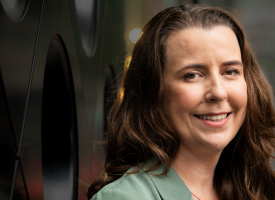Time to be vaccinated with early, high-risk surge in respiratory viruses
Transcript: AMA President, Professor Steve Robson, on ABC News Breakfast on Monday, 26 June 2023.
Subject: Low vaccination rates and higher winter respiratory virus infections.

EMA REBELLATO: Well, the cold and flu season has well and truly arrived, with infections higher than usual for this time of year. It comes amid growing concern that low vaccination rates will only add to the burden on the healthcare system. AMA President Steve Robson joins us now from Canberra. Steve, good morning. Thanks for joining us this morning.
STEVE ROBSON: Yeah, good morning, Emma.
EMMA REBELLATO: So what sort of numbers are we seeing right now?
STEVE ROBSON: We're seeing an early surge in the number of influenza cases, and in places like Queensland, the numbers are really high. We know it's a high-risk time coming into winter with school holidays and a lot of people travelling. So we've got to be very careful to make sure our health services can cope with the demand at the moment.
EMMA REBELLATO: So why is there an early surge? Is there a reason behind this? And is it just flu, or are we seeing COVID as well?
STEVE ROBSON: We're seeing a number of respiratory viruses around the country. COVID’s very important at the moment, the number of influenza cases is high, and lots of other respiratory viruses around as well. The surge seems to have begun early, and I think one of the issues is that a lot of people haven't perhaps got around to having a flu vaccination. That makes everything worse. So, there's one bit of advice that I've got: If you can possibly have a flu vaccination and you haven't already, go and get one.
EMMA REBELLATO: We see lots of different strains of the flu each year obviously. Is there anything in particular about this year's flu? Is it worse than what we've seen previously?
STEVE ROBSON: We know that flu can always be worse. This one really seems to be affecting younger Australians and children, and that's a problem because if they're affected, they spread it to other members of their family. So that makes things worse and that's probably one of the reasons the flu season is so bad this year. But it's also freely available to have flu vaccination for children from six months to five years. And any Australian with an underlying health condition, older Australians, First Nations Australians, they're all eligible for a free flu vaccination so we really encourage them to take that up if they haven't had one already.
EMMA REBELLATO: What sort of impact are we now seeing on our healthcare system, particularly our hospitals?
STEVE ROBSON: Yes, it has two impacts. It creates an enormous amount of demand through the emergency department. It can mean that people who are vulnerable are more likely to get sick and end up in hospital, and that's a problem. But it also means that hospital staff are more likely to catch it when there's a lot of flu around. And even though they're vaccinated, you can still- you're exposed to a lot as a healthcare worker. So it's really important to try to ease the burden on our health system. There are still other health issues going on, and the less that hospitals, healthcare facilities, your GP has to deal with flu, the more they're able to help you with your other health problems. So it makes sense to try and protect yourself as much as possible.
EMMA REBELLATO: So on top of the flu at the moment, of course, we've got COVID. You speak to a lot of people who are sick at the moment. They're doing RATs. They say it's negative, but it still feels like COVID. Are we seeing discrepancies or problems with the RATs at the moment for the particular strain, or is it that they just have something different?
STEVE ROBSON: Yeah, we know that it's a big issue. RATs are helpful, but I guess they're helpful when they're positive. If it looks like somebody is affected by COVID, even if the RAT is negative, it's probably safer to assume that it's COVID and act to protect yourself that way. It's also another great reminder, Emma, that the rates of boosters for COVID are dropping off in the community. And we all understand that people are sort of getting a bit sick of it, but it's just so important to protect yourself from these things. And another reminder that if you're overdue for a COVID booster, go and get one now.
EMMA REBELLATO: So is there something besides the vaccines for COVID and flu? Should people- is it so bad that people should be taking other precautions right now as well?
STEVE ROBSON: Yeah, I think- as I said, it's a high-risk time. It's winter, so people are more likely to be inside together. And it's also school holidays, so lots of people are travelling around and it's possible they get sick in one place and by the time they arrive somewhere else on school holidays or they come back from school holidays, they could have it and spread it around. So, flu and these other respiratory viruses really spread quickly at this time of year. So making sure that if you're sick or you think you're coming down with something to try and isolate yourself if you can. There's still a role for wearing masks - we know how important they are in reducing transmission - and really looking after yourself. A key thing, of course, is vaccination. It's hard to say that too many times.
EMMA REBELLATO: Steve Robson from the AMA, thanks for joining us this morning.



